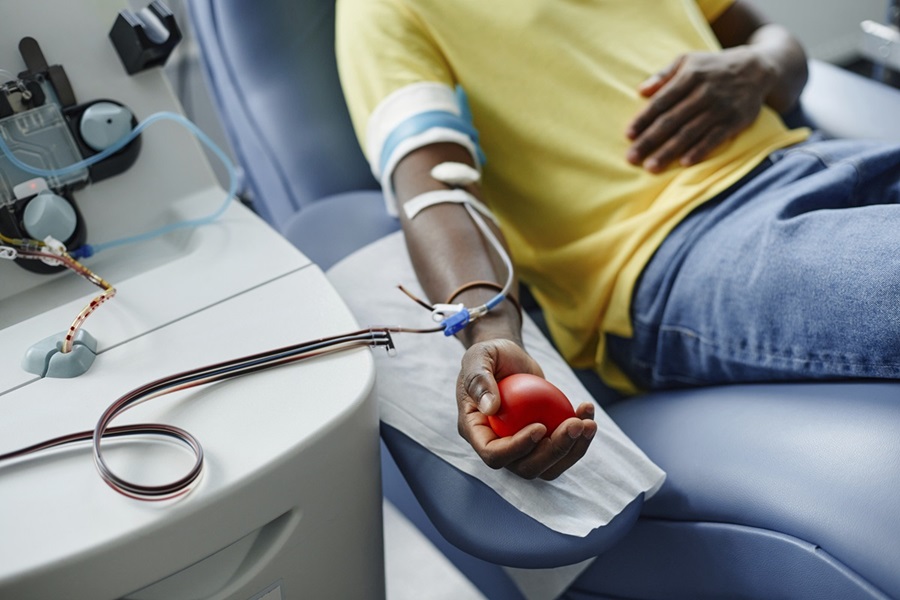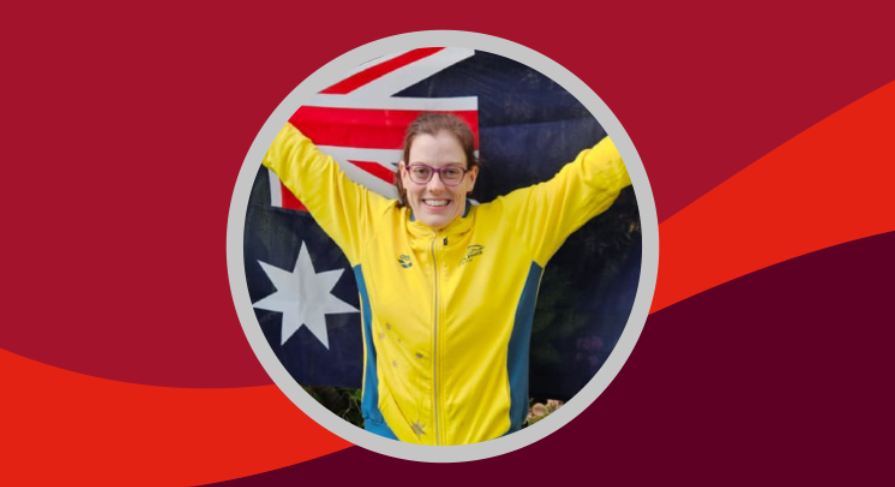- Home
- Mind & body
- Why are blood donations so important?
At CBHS we help you manage your health challenges. We believe in offering you the services, support and tools you need to live your best life.
Health and Wellness Programs are available to support eligible members towards a healthier lifestyle. Each Health and Wellness Program is subject to its own eligibility criteria.
Contact us for more information and to confirm your eligibility for a program.
Why are blood donations so important?

You’ve probably already heard of the Australian Red Cross Lifeblood, a government-funded organisation that provides blood, plasma, transplantation, and biological products with the aim of ‘giving life’.
They supply blood products to people who need blood to survive, have a medical condition, as well as supply blood products to medical researchers, where they’re used to test new treatments for things like blood clots, heart attack, and strokes. Let’s take a look at how it all works and how each of us can play a role to help save lives.
There’s more to it than blood
On average, Australia needs three blood donations every minute to meet its demand. Once your donated blood is collected, it’s separated into:
- Red cells: These vital cells carry oxygen throughout your body. When someone receives donated blood, it's usually the red cells that help enhance their blood's oxygen-carrying capacity.
- Platelets: Essential for blood clotting, platelets are crucial for patients battling conditions like leukaemia or recovering from severe bleeding.
- Plasma: Comprising 55% of your blood, plasma is a powerful component that can be used in many life-saving ways. From treating burn victims and cancer patients to supporting those with brain and nerve disorders, plasma donations play a critical role in medical care.
You can check the status of Australia's current blood supply and which types are most urgently needed, on the Lifeblood website. In a single 10-minute donation, you can help save lives.

Australian gold Paralympian Rachael Watson thanks blood donors for her success
Rachael Watson, a gold medallist at the 2020 Tokyo Paralympics, attributes much of her success to the life-saving plasma donations she received. Diagnosed with Guillain-Barre syndrome (GBS) and chronic inflammatory demyelinating polyneuropathy (CIDP), Rachael's conditions severely impacted her nervous system, leading to muscle weakness and paralysis. Her treatment involved Intravenous Immunoglobulin (IVIg), a therapy derived from donated plasma, which helped stabilise her condition and enabled her to start rehabilitation.
Overcoming significant physical challenges, Rachael not only regained strength but also became a world-class swimmer, winning gold at both the Rio and Tokyo Paralympics. She credits plasma donors for giving her the chance to pursue her dreams, emphasising the profound impact of blood donations on her life and success.
Can you donate?
To donate blood in Australia, you must be a healthy adult aged between 18 and 75 years, weigh at least 50kg, and feel well enough to donate. But other eligibility criteria apply.
Some factors that may affect your eligibility to donate include: current medications, medical history, recent travel or surgeries, country of origin and recent illnesses. It's also essential to be free from illness, such as cold or flu, at the time of donation, and your temperature and blood pressure should be within normal ranges.
The Australian Red Cross Lifeblood provides an eligibility checker and will ask you a series of questions to ensure the safety of both donors and recipients upon your arrival to the donor centre. If you have any questions about your specific situation, you can get further guidance at 13 14 95.
Blood donation myths
“I can’t donate blood because I recently had a tattoo”
Myth! You can donate plasma straight after getting a tattoo, as long as it was done by a licensed professional and in Australia. For blood or platelets donations, you only need to wait seven days and you’re good to go.
“I can’t donate blood because I recently had a piercing”
You can only donate plasma within the first 24 hours of getting your ears pierced, and can donate blood and platelets 24 hours after.
If you’ve had your body pierced, for plasma donations, it’s the same as getting your ears pierced, but you’ll need to wait four months to donate whole blood or platelets.
"I don't have time."
Got a lunch break? The actual donation process itself only takes 10 minutes, and you also get the satisfaction of knowing you're changing lives!
How to prepare for your blood donation
Lifeblood has many tips on how to prepare and relax yourself before a blood donation appointment, but first things first:
- have your ID with you. It can be a passport, driver’s license or your digital donor’s card
- have a list of medications you’re taking in hand to show the Lifeblood team that’s looking after you
- check out these tips to help you relax and get yourself ready for the day.
The day before your donation:
- make sure you’re hydrated, that’s 10 glasses of fluid for men and eight for women
- have a good night’s sleep
- eat healthy and try to avoid fried or high-fat foods – they can interfere with your plasma donations and laboratory tests.
Three hours before your donation:
- drink three big glasses of fluids, that’s 750mL
- don’t exercise too hard, or try to avoid it altogether
- make sure you eat something savoury.
What to expect on the day of your blood donation
At the donor centre, you’ll arrive at the reception where the staff will check your ID. They’ll then ask you to fill out a donor questionnaire – a confidential set of questions about your health, lifestyle and recent events.
Once that’s done, a staff member will ask you some questions, give you a quick ‘finger prick’ to test your haemoglobin or iron levels, check your blood pressure, and answer any of your questions.
Now it’s time to donate! As Lifeblood say, “Sit back and relax”, they’ll be doing the hard work for you. It’s a safe and almost painless process. For blood donations, the whole appointment will usually take around an hour, but the donation itself is only 10 minutes. Your body will replenish the plasma in around 24-48 hours, and red blood cells are fully restored within 10 to 12 weeks.
For plasma donations, allow 1.5 hours for the whole appointment, while the donation itself will take around 45 minutes.
When it comes to platelets, the process is just like donating plasma but a little lengthier. The donation will take about an hour, and you’ll need to reserve two hours for the whole appointment.
After your donation
Once your donation is finalised, the team will ask you to wait for about five minutes in the donor chair before heading to the cafeteria area. It’s important to drink a lot of fluids and eat your favourite snack, your body is in recovery now and you’ll need the energy.
You should be able to have a ‘normal’ day after that, just try to avoid exercising too hard or overheating. Keep yourself hydrated and energised with regular meals. Most people feel good after donating, but if you do feel unwell in the 12 hours following your appointment, call 13 14 95. You can also have a look at some handy Lifeblood tips.
Support the CommBank and CBHS Lifeblood team
When you arrive for your donation, you can allocate it to a Lifeblood team! CBHS and CommBank both have a Lifeblood team that you can allocate your donation to. To join the teams, log in to the Lifeblood website (you'll need to register if you haven't already created an account). Then under ‘Teams’, click on ‘My team’ and type ‘Commonwealth Bank’ or ‘CBHS’. You can also log into the Lifeblood app and click on ‘Account’ then ‘Teams’. Or next time you're at Lifeblood to donate, ask reception to add you to your preferred team.
Once you log into your Lifeblood account, you can track how your team is doing and how many lives you’ve all saved together this year.
All information contained in this article is intended for general information purposes only. The information provided should not be relied upon as medical advice and does not supersede or replace a consultation with a suitably qualified healthcare professional.
Sources:
https://www.betterhealth.vic.gov.au/health/conditionsandtreatments/blood-donation
https://www.healthdirect.gov.au/blood-donation
Health and wellbeing
programs & support
You Belong to More with CBHS Hospital cover:
- Greater choice over your health options including who treats you
- Get care at home with Hospital Substitute Treatment program
- Free health and wellbeing programs to support your health challenges
Live your healthiest, happiest life with CBHS Extras cover:
- Benefits for proactive health checks e.g. bone density tests, eye screenings
- Keep up your care with telehealth and digital options
- Save on dental and optical with CBHS Choice Network providers

